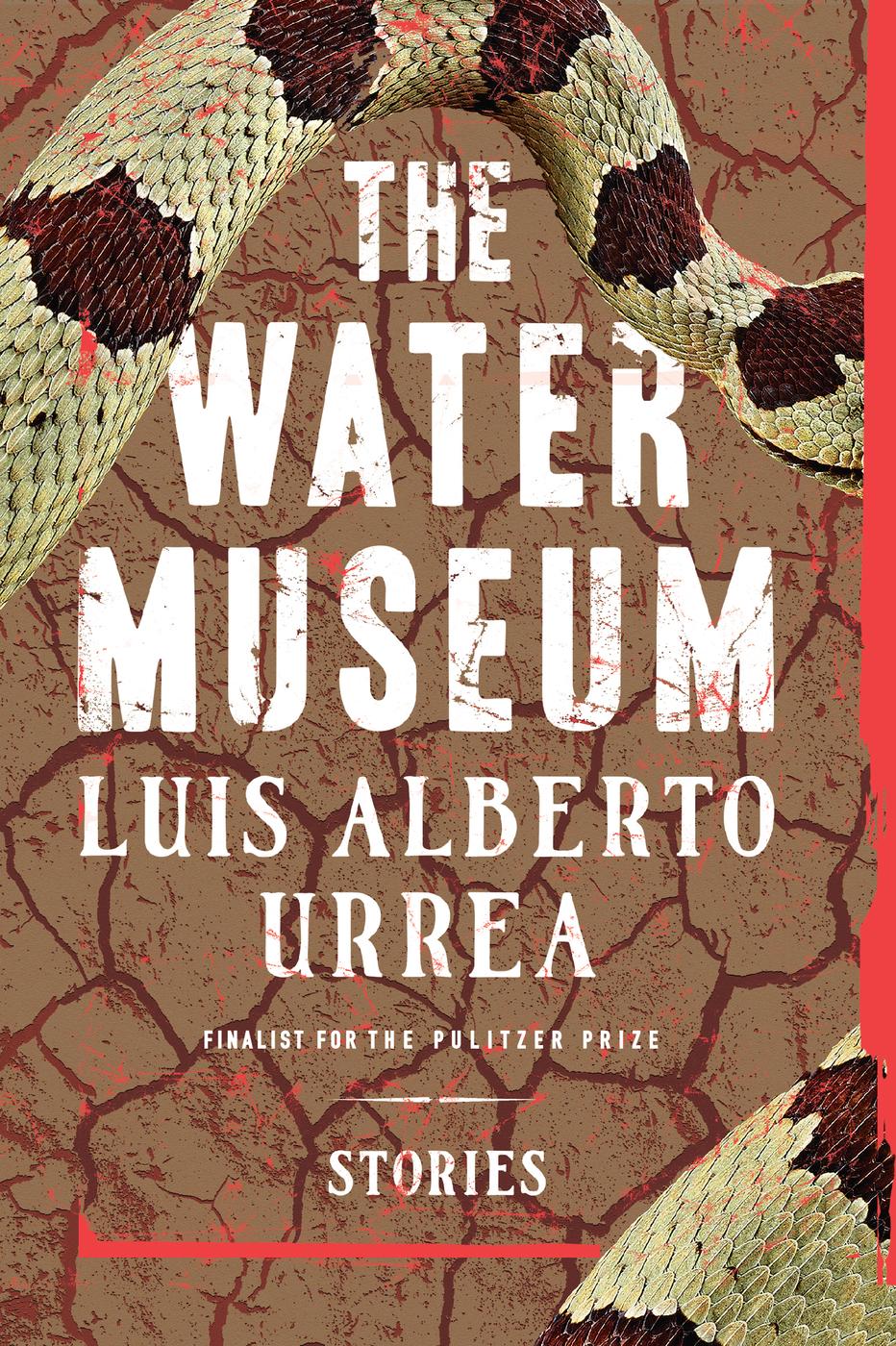
The Water Museum
Stories
کتاب های مرتبط
- اطلاعات
- نقد و بررسی
- دیدگاه کاربران
نقد و بررسی

February 16, 2015
Urrea’s (The Hummingbird’s Daughter) collection of darkly funny stories explores racial politics and amorphous cultural lines, set primarily in the Southwest. In the title story, a small town is in the throes of a drought so prolonged that a water museum is created to teach the town’s children about the long-lost resource. During the museum’s reenactment of rain, one student begs, “Stop it, Miss! Oh, stop the rain!” In the Edgar Award–winning story “Amapola,” a white high school boy falls in love with his best friend’s Mexican-American cousin, Amapola. Her very conservative and protective family puts the lover through the ringer to prove his love for Amapola. In “The National City Reparation Society,” Junior and Chango take a canoe fishing and are stopped by border patrolmen. Junior is urged to leave the scene, while Chango is held, sinisterly, behind. Urrea has a wonderful eye for details and captures each story’s context with wonderfully sharp observations: when Junior walks through his old hometown, he sees “the flat old cat carcass they used for home plate.” These stories are vibrant, tender, and invoke a strong sense of place.

Starred review from February 1, 2015
Urrea, celebrated for his historical sagas (Queen of America, 2011) and nonfiction (The Devil's Highway, 2004), offers 13 stories that reflect both sides of his Mexican-American heritage while stretching the reader's understanding of human boundaries.With spare eloquence, the opening "Mountains Without Number" conjures up a dying town near Idaho Falls, both its stark landscape and aging inhabitants. The language turns lush, Latin and slangy in the next two stories, "The Southside Raza Image Federation Corp of Discovery" and "The National City Reparation Society," which feature the bookish Mexican-American Junior, who doesn't fit in with a white college crowd any more than with the immigrant community he grew up among. The theme of young Anglos straddling class and/or cultural borders occurs, too. The adolescent white narrator of "Amapola" falls in love with a beautiful Mexican girl, naively oblivious to the source of her family's wealth. Joey in "Young Man Blues" learns the reward and price of goodness when caught between loyalty to his elderly middle-class employer and his father's criminal cohorts. While "Carnations" and "The White Girl" are brief snapshots of grief, "The Sous Chefs of Iogua" resonates on multiple levels, exposing the uneasy complexities of Anglo-Mexican relationships in an Iowa farm town. In "Taped to the Sky," a Cambridge academic suffering over an ex-wife takes a cross-country trip to the far west and has a darkly comic encounter with Oglala Sioux Don Her Many Horses, who shows his depth in the volume's bittersweet final story, "Bid Farewell to Her Many Horses," about a white man whose marriage to Don's sister shows the power and limitations of cross-cultural love. "Mr. Mendoza's Paintbrush," about a graffiti artist in a Mexican village, was published as a graphic novel in 2010; its magical realism would make it an outlier here if not for the penultimate "Welcome to the Water Museum," a dystopian tale of Western life in an arid future when children consider water an anomaly. Urrea's command of language is matched only by his empathy for his characters.
COPYRIGHT(2015) Kirkus Reviews, ALL RIGHTS RESERVED.

April 1, 2015
The latest collection from fiction and nonfiction author Urrea (creative writing, Univ. of Illinois, Chicago; The Devil's Highway) presents a series of unresolved endings in the author's classic picturesque prose. Where does recently estranged Hubbard go, in "Taped to the Sky," after his joyride across the United States results in unexpected acquaintances? What is Joey's fate in "Young Man Blues" after he betrays the club his imprisoned dad remains loyal to? Does Dexter Bower, in "The Sous Chefs of Iogua," come to accept the changing demographics of his Iowa town? "Mountains Without Number" begs the question, "Is the town dead when old men die or children leave?" The stories often focus on adjusting to life in the Unites States, on men choosing between being a vato or a gabacho; fans of The Hummingbird's Daughter or Queen of America will already be familiar with Urrea's emphasis on rural life and occasional Mexican slang. Containing ten new stories, this brief yet powerful collection also features the award-winning "Amapola" from the anthology Phoenix Noir, "Bid Farewell to her Many Horses" from Six Kinds of Sky, and "Mr. Mendoza's Paintbrush," originally published as a graphic novel in 2010. VERDICT Urrea's well-recommended collection leads readers to feel empathy for each character, deserving or not, and provides a gut-wrenching view of life along the sidelines.--Stephanie Sendaula, Library Journal
Copyright 2015 Library Journal, LLC Used with permission.

March 15, 2015
The author of numerous fiction and nonfiction titles, including the poetry collection The Tijuana Book of the Dead (2015), Urrea is an established storyteller who blends sympathetic characters with riveting, unexpected plots. An early story in this collection catalogs the hilarious misadventures of Junior and Shadow, two Chicano homeboys who imitate Louie and Clark in a stolen kayak, until Shadow's family gets a visit from ICE. In the next story, Junior and his brother Chango steal abandoned dishwashers and TV sets from foreclosed homes in Arizona. In Taped to the Sky, Don Her Many Horses lends a rifle to Hubbard, a crazed white guy lost near the Oglala reservation, who destroys his ex-wife's Volvo with gunfire. Her Many Horses reappears in another story after the unexpected death of his sister. While a few of these stories appeared in a previous collection (Six Kinds of Sky, 2002), and the story of a mysterious, graffiti-covered Mexican town worked best as a graphic novel (Mr. Mendoza's Paintbrush, 2010), Urrea succeeds in writing unforgettable characters who face desperate, life-changing scenarios.(Reprinted with permission of Booklist, copyright 2015, American Library Association.)

























دیدگاه کاربران